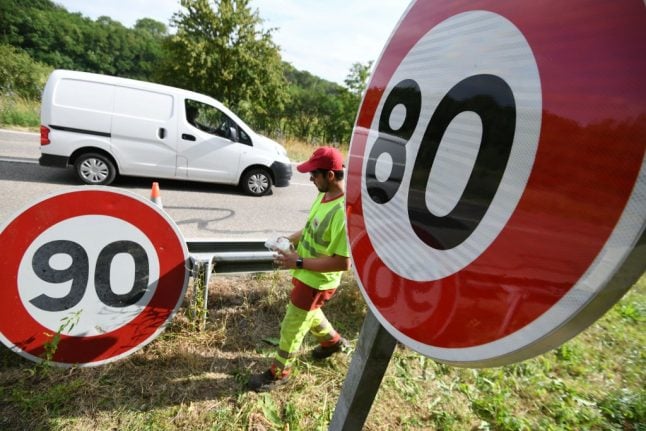The French government has indicated that it may bow to pressure over the highly unpopular 80 km/h speed limit on secondary roads.
- Is your département planning to scrap France's 80km/h speed limit?
- EXPLAINED: What France's return to the 90 km/h speed limit will mean
 Photo: AFP
Photo: AFP
Josseaume argues that as a result of the U-turn any motorist who was caught speeding at less than 10km/h above the 80 km/h limit, introduced in July 2018, should be able to ask for it to be scrapped.



 Please whitelist us to continue reading.
Please whitelist us to continue reading.
Member comments